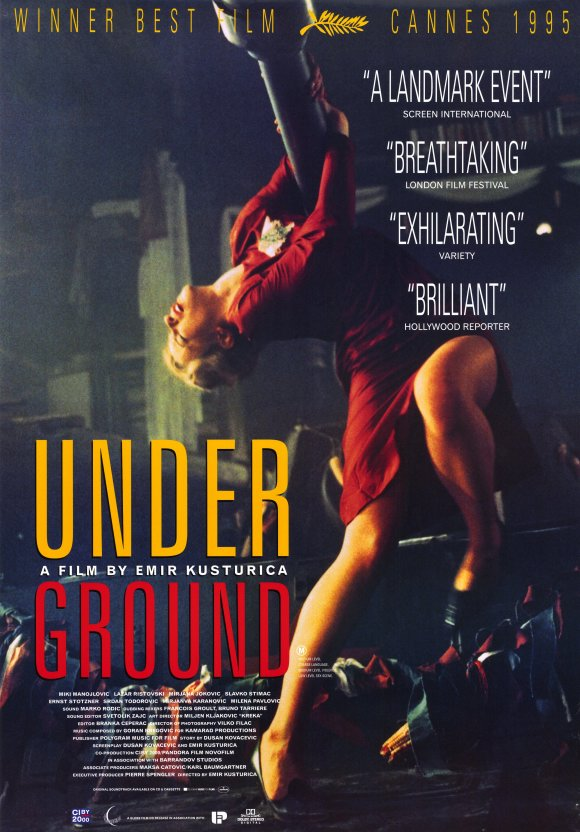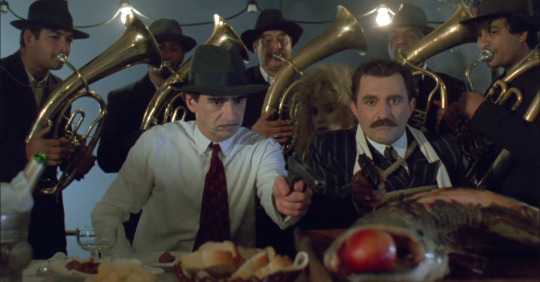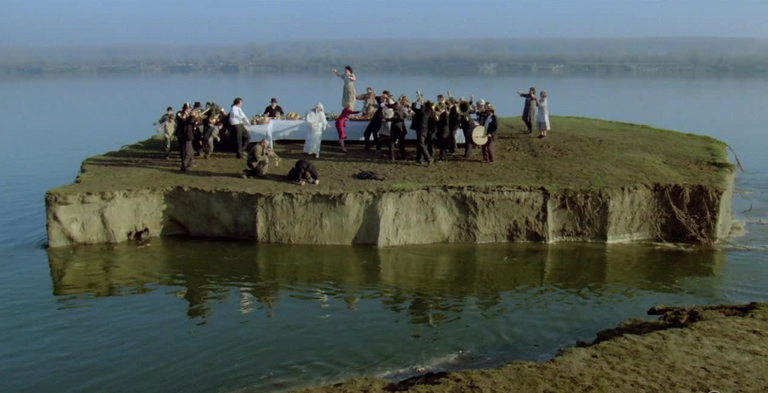Summer of 1995. It is the period when the two big box office hits of that year are shown in cinemas for the Greek public. On the one hand, Theo Angelopoulos' The View of Ulysses, which had won the Jury Grand Prize at the Cannes Film Festival, and on the other, the great rival, the film that won the Golden Palm that year, Emir Kusturitsa's Underground.

The city's summer cinema (open air cinema) is showing the second film. We're late getting in and the screening has already started. From the entrance you can hear the "brass", the musical instruments that are an essential ingredient in northern Balkan music.
They set the breakneck pace with which the film begins. The two protagonists, Miki Manojlović and Lazar Ristovski, after an all-night party, ride in a carriage through the city of Belgrade. It is the early hours of April 6, 1941, the day Nazi troops invaded Belgrade. The music seduces you, makes you move your feet rhythmically and want to get up and dance.

The scenes alternated on the screen. From the cheerful fun of the two friends to the harsh images and moments of the civil war. From comedy to drama. And let the music constantly follow the beat. From the introduction of "Kalashnikov" that begins with the sound of brass and ends with a dizzying rhythm,
to the bittersweet Cajesukarije-Čoček (how many times have we danced to it)
and to my personal favorite Mesecina =Moonlight. I loved this song from the first moment and I still do.
Marco above the surface of the earth and Blackie below the surface, in an underground bunker, since Marco has tricked him into living with a few others for decades, under the pretense that the war against the Nazi Germans continues. Kusturitsa tells his story through the perspective of these events. But he does not go into a deep analysis of the facts. How could it, after all, everything was so recent back then? What he wanted to show is how "Once upon a time there was a land...".
The film captivated us. But the music of the film accompanied us for many years and still accompanies us. I don't think there can be a party for people in their thirties without "Kalashnikov" playing. It is no coincidence that some of the songs on the soundtrack were translated into Greek and sung by Greek artists. Bregovic is still very popular in Greece and often comes for concerts.
The music is familiar to our ears, this intense music, with the sound of brass instruments dominating. It is the Balkans and it is the amalgamation of all the places that make up this peninsula and have passed through its history: Slavs, Greeks, Turks, Vlachs, all have left their mark on this music.
Goran Bregović's music accompanies the tragicomic story of two friends... No, rather it is the story of a country, Yugoslavia, from 1941 until its final dissolution in 1995. In an almost surreal turn of events, the two friends, Marko (Manolovich) and Blackie (Ristovsky) live the history of the country through its important events. The occupation by Nazi Germany and the resistance, Tito's socialist regime and the civil strife that broke up the state of Yugoslavia.

source
The music of Bregovic help us take this journey to this nostalgic view of Kusturica. And, believe me, the director couldn't find any better helper to present his view that his old pal, the composer, Goran Bregovic. This is not the only film that they have cooperated. And if you haven't heard the magnificent "Ederlezi" from the film Time of the Gypsies, or "In the Death Car" from Arizona Dream, please do it now.
Thank you for reading,
This is a post for the cine contest. You can click on the link to learn about it and join the contest.